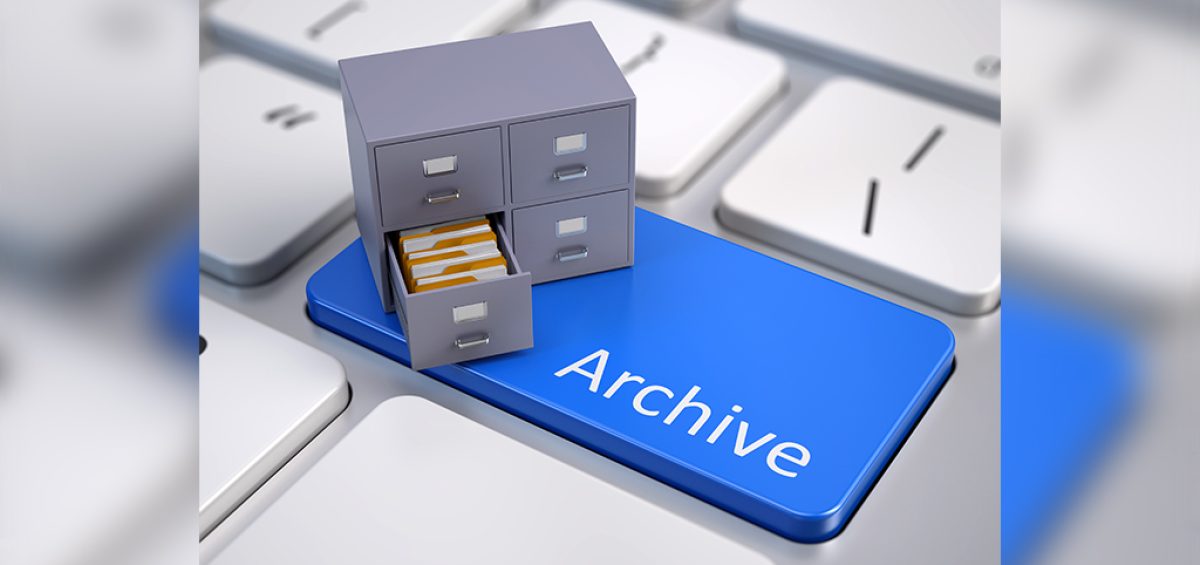There was a time when offices used to have cabinets piled with papers and files. It wasn’t until the early 2000s that these papers were converted to digital documents. Digitization not only saved ample amount of storage space in offices, but also eased the process of managing and organizing documents. Where once people had to manually search for that one particular file, now the same task could be done on a computer within a few minutes. This is where digital publishing and digital archive solutions come into the picture.
Life became easier with digitization, where office staff had a convenient online access to information.
However, even now, in 2019, there are some organizations that are apprehensive about going completely digital. They will still have a corner in the office where all the paperwork is being stored. As they say, old habits die hard.
And a majority of these organizations are the nonprofit associations. While for-profit companies will always be the first ones to invest in latest technologies and innovations to drive their revenue, nonprofit organizations lag behind. Although many of them have started using data management systems to manage all their data.
But what about the records that are already present in paper format and stored in filing cabinets?
That too, needs to be converted into digital files. And this can be done by creating a digital archive of all your past records. In this blog we will focus on why nonprofit associations and societies must have a digital archive of their documents.
What is a Digital Archive?
The Merriam-Webster defines an archive as “a place in which public records or historical documents are preserved”.
An association or a society has huge amount of data that includes member information, articles of incorporation, photographs of events, annual reports, minutes of meetings, financial reports, audit reports etc. Here are 7 effective guidelines to create an e-Report for associations.
All of these are traditionally stored in physical files. Creating a digital archive will help the associations to manage the information efficiently.
6 Ways Associations and Non-Profit Societies Benefit From a Digital Archive
1. Maintain a Database of Records
A nonprofit organization has huge volumes of data, including sensitive ones such as the personal information of members, financial data and so on. Instead of maintaining separate files and cabinets for various documents, it is better to have it all in one compact device.
Today’s generation does not know what it was like to search through manual files and organize everything physically. The files had to be correctly labelled and placed in the right order, sorted according to alphabets, date and year. The same can now be achieved through digitization. All your files can be scanned and stored into a database.
It becomes easier to manage the records in this way, relieving your staff from the time-consuming and laborious task of organizing physical files.
2. Easy to Search Information
Coming from the first point, once the data has been organized in a systematic manner, it becomes easier to find the required information. If at any point of time you want to refer to some old data, you can search and retrieve it within minutes. This is way better than having to browse through each file manually.
3. Data Can Be Kept Secure
Physical files are always at a risk of damage. As you know, the quality of paper deteriorates over the years. It could tear or possibly rot due to infestation. Weather conditions and disasters like a flood or a fire pose another great risk.
Of course, your computers will also get destroyed in case of a disaster. But you can rest assured that the data within will be secure. Cloud storage is something that is preferred by most organizations these days in order to keep their data safe. It is always better to have a backup of your data. Therefore, even if your system crashes, you can still retrieve your data.
4. Saves Office Space
Imagine the amount of space that you would be freeing up by creating a digital archive of your records. Those humongous filing cabinets can be replaced with one small computer. All your files can be organized and managed in an absolutely clutter free manner.
And when it comes to space on a computer, once again, you don’t need to worry as the data is saved on the server. You don’t even have to fear using up all your drive space on the desktop or laptop. And anyways, most digital devices today can be equipped with external hard drives or a removable disk in case you need more storage space.
5. Cost-Effective
Archiving your records is certainly more cost-effective than storing them in its physical form. Physical storage needs space and proper maintenance of the storage space. You might still be printing out papers for some or the other purpose; maybe for a handwritten signature, to stamp a seal, sending out brochures etc. There’s continuous expense involved.
Archiving would be a one-time investment. Once the data is digitized and stored in the online space, you don’t really have to worry about maintaining it. Think about all the paper you will be saving by going the digital way.
6. Saves Time
Archiving old records saves time spent on organizing and locating physical files. Even if it took only 30 minutes for the staff to do this manual operation, this time can now be utilized for productive work. By archiving your old files, you can reduce that time from 30 minutes to three minutes.
How Should Associations Create a Digital Archive?
- Identify the Users – Who is going to use this archived data? The members of your association are definitely not going to want to browse through the archives on a regular basis. It’s mainly going to be the legal authorities for audit purposes, the account managers, and the admin staff who run the day-to-day operations. So, the records should be archived and stored in a user-friendly system, such that they find it easy to operate and navigate.
- Create the Right Metadata – Metadata makes the content searchable. So, when you digitize the old papers, reports, images etc., ensure you tag them correctly and create accurate metadata that can be easily identified by the system. This helps the user to instantly find what s/he is searching for.
- Find the Right Vendor – In case you do not have the resources or manpower to undertake the task yourself, it is better to let the professionals do the job. Find a company that offers digital archiving solutions. See if they have the expertise in scanning and digitization. Check out their previous work or client testimonials and finalize a vendor that suits your needs.
To Sum it Up
With a digital overhaul, associations and societies can achieve a paperless office, which is more efficient, time saving and cost-effective. All you need to do is find a company that offers digital archiving services.
HurixDigital offers prepress services that can help you convert all your documents and files into digital archives. We help associations and nonprofit organizations undergo a digital transformation with our bespoke content solutions such as cloud-based content development, editorial and production services, taxonomy, tagging and indexing services and many more.
Related:
How Can Societies Digitize Publishing and Delivery Process
Why Should Societies & Associations Publish & Distribute Journals on Digital Platforms?
8 Ways to Keep Members of Societies Engaged in the Digital Era
DISCOVER HOW TO ENGAGE AND RETAIN MEMBERS WITH INTERACTIVE DIGITAL CONTENT
Kitaboo is a cloud-based content platform to create, publish & distribute interactive mobile-ready content.
You May Also Like







